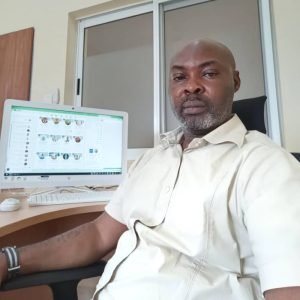It is the hope of majority of people in the world to have long lives like those mentioned in the holy books who lived well beyond a hundred years.Gom Mirian writes that in Nigeria, a nation with a rich cultural and religious heritage, the stark reality stands in sharp contrast to this narrative, as the country faces a persistently low life expectancy rate.
According to the World Health Organisation (WHO), Nigeria’s life expectancy stands at approximately 55.2 years, significantly lower than the 70-year benchmark set by the United Nations. The question is, why are Nigerians not living as long as their ancestors were said to have lived?
One of the leading contributors to Nigeria’s low life expectancy is the prevalence of several medical, social and economic challenges that plague the country. The burden of infectious diseases such as malaria, HIV/AIDS, tuberculosis, and many others remains high, especially in rural areas with limited access to healthcare. According to experts, these diseases are responsible for a significant number of untimely deaths, particularly among children and women of reproductive age.
Impact of poor healthcare on life expectancy
Dr. Simon-Peter Gom, a Consultant Pediatrician and Medical Director, Rufkatu Danjuma Maternity Hospital for Children in Taraba State, outlined the causes of low life expectancy in the country and emphasised the significant challenges the healthcare system faces. He said they include inadequate infrastructure, a lack of staff and limited access to necessary medication. He added that this has led to less than optimum healthcare delivery, making it difficult for the general public to get timely, adequate, and high-quality medical interventions.

According to him, the situation is made worse by the outrageous cost of healthcare, which makes it impossible for many Nigerians to afford preventative care and basic medical treatments.
He stated that “another critical factor contributing to Nigeria’s low life expectancy is the prevalence of non-communicable diseases (NCDs) such as cardiovascular diseases, diabetes, cancer and respiratory illnesses. These conditions are often linked to lifestyle choices, including an unhealthy diet, lack of physical activity, tobacco use and alcohol consumption. The burden of NCDs is increasing in Nigeria, and these diseases have become major causes of premature death and disability.”
Dr. Gom further said “tackling preventable diseases through vaccination campaigns, community health education and improving access to clean water and sanitation are fundamental to improving life expectancy. Public awareness campaigns emphasising the importance of healthier lifestyles, diet, and exercise are also underway to combat the rise of NCDs.”
How false religious beliefs contribute to low life expectancy in Nigeria
For Dr. Richard Okoye, Chief Medical Director at Save-a-Life Mission Hospital, the situation can be blamed on the high level of ignorance among Nigerians, traditional tales and messages from various religious groups that have caused people to mistake their health problems for spiritual attacks and thus, delay seeking medical care that will lead to prompt cure, especially for preventable diseases.
He said: “This has generated confusion among patients that if you have swelling, which might have been caused by kidney failure, a heart problem, ccellulits or a wound that should ordinarily heal. You may also observe those who have ulcers that will eventually ruin their legs and lead them to die of diabetes. Many of these people would die, and when they do, you may hear that they had taken poison that had been given by a coworker, a neighbor or an uncle. Most individuals might believe such to be the case.

“Even the wealthy elite who are educated will tell similar stories and die in this tragic circumstance. They will tell you that since your issue is spiritual in origin, you shouldn’t go to the hospital or take your prescriptions. People think taking drugs is a sign of faithlessness. You will observe that many people who have cancer, if detected early, may have been saved. On occasion, they are instructed to drink anointing oil or sow their money as a seed to be healed.
“It is regrettable that so many clergy have perished. Sadly, some of them even pass away while preaching, saying things like, “I can’t be sick, that’s not my portion,” or “I can’t be lying in a hospital bed,” forgetting that a child of God can be tried by poverty and will experience a lot in life since there have always been challenges.
“Whatever one does, you will handle it in line with the knowledge you have. However, start with the known and work your way out to the unknown. You can assess where human effort is being focused with wisdom. God may now continue, but we plead with people to avoid meeting an early demise due to ignorance.”
Economic implications
Speaking on the economic implications of this crisis on the Nigerian economy, a professor of Economics at Bayero University, Kano, Prof. Mustapha Mukhtar, explained that it has a substantial impact on the economy of the nation.

According to him, a shorter lifespan means that people’s productive years are reduced, which lowers their capacity to contribute to economic growth and progress.
“Also, high mortality rates lead to increased healthcare costs, burdening the country’s healthcare system and diverting resources from other sectors. Furthermore, low life expectancy results in a lack of skilled labour and expertise, hindering innovation and impeding progress in various industries.”
In order to solve Nigeria’s short life expectancy, according to Mukhtar, a multi-faceted approach that includes investments in healthcare, improvements in education and the promotion of entrepreneurship is needed. By prioritising these areas, Nigeria can improve the health and well-being of its citizens, increase productivity and ultimately boost economic growth and development.
In order to improve public health, promote social welfare, foster economic development, uphold human rights and address demographic challenges, it is imperative that Nigeria’s low life expectancy is addressed. Failure to address this issue will impede the viability of policies the Tinubu administration plans to adopt in boosting economic growth in the country.



